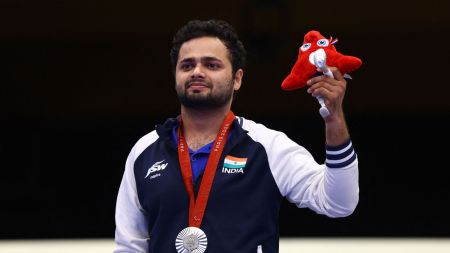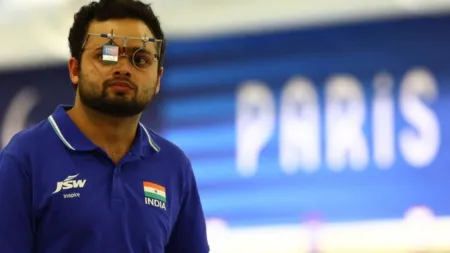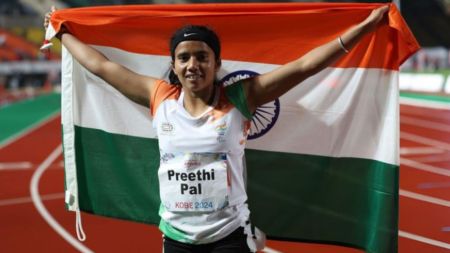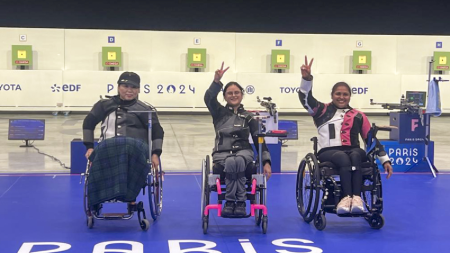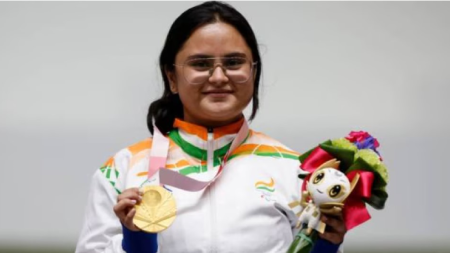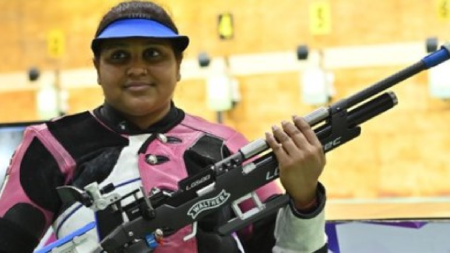Lesson for Carlos Alcaraz after shock US Open defeat: How to win on a bad day
About an hour into his second round contest at the US Open, Carlos Alcaraz finally came alive. Against a spirited challenge from Dutchman Botic van de Zandschulp, a solid baseliner but a player ranked 71 spots below the Spaniard, he had been thoroughly outplayed in the first set, before finding the break to go 2-1 up in the second. The New York crowd roared; the inevitable comeback seemed on cards.
It never came. Van de Zandschulp broke back immediately, and Alcaraz slumped to a kind of defeat he has never suffered since breaking through to the top level of this sport, losing 1-6, 5-7, 4-6 to end his Grand Slam season. This is his earliest exit from a Major since his French Open debut in 2021.

While van de Zandschulp put in the greatest performance of his hardly notable career, he did not do so with swashbuckling groundstrokes and unplayable serves, but through baseline precision and resolute defence. It was Alcaraz, instead, who was poor from start to finish.
His critical appraisal of the defeat reflects his performance. “I think my level stayed at the same point all the match, and it wasn’t enough to win the match or to give myself the chance to get into the match,” he said, per Reuters, after the match. “He didn’t make a lot of mistakes that I thought he was going to do so I was confused a little bit… I didn’t know how to manage that.”
It was during the attritional moments of the second set, with the match still in the balance, when it became painfully transparent that Alcaraz was having an off day. Groundstrokes were not finding zip, errors were being sprayed, serves were being easily returned. Alcaraz may suggest that the lesson here is to never allow his level to slip so low, but the greater takeaway may be how to develop the kind of weapons and consistency to allow him to escape with a win over a peaking opponent on a bad day.
Alcaraz’s successes have outpaced expectations to the degree that it may be easy to forget that, at 21, he is still slightly inexperienced. Four Majors, and big wins in finals against the greatest player of this sport, have elevated his reputation from prodigy to best player in the world destined to take the reins from Roger Federer, Rafael Nadal and Novak Djokovic.
But the huge disparity between Alcaraz’s best and worst tennis is the gap the Spaniard still has to bridge to emulate the fabled ‘Big Three’. Countless times during Grand Slams, the greats of the game would use small tweaks and street smarts, to edge past an opponent who had hit ‘the zone’.
Djokovic has now developed a class-leading serve that allows him to win free points, and in the worst of circumstances, drag sets into tiebreakers where he would make his opponents blink first. Initially rigid to new technology, Federer began to use a larger racquet so he could introduce more variation and flatter speed to his one-handed backhand that had become a perceived weakness. In response to those targeting his poor second serve, Nadal (and, to an extent, Andy Murray as well) took the riskier route of introducing greater speeds to disrupt opponents. These changes did not necessarily raise the ceilings of these players, but instead, lifted their floor level.
Wobbles have come and gone for Alcaraz even during his dream summer. En route to lifting the French Open and Wimbledon, he lost sets when his level fell. In the Paris final, he let a lead slip twice after spraying errors and losing focus. He has survived close scares – the tight four-set second round win against Jesper De Jong at the French Open and the five set escape against Frances Tiafoe at Wimbledon.
Over the years, the champions have used their strong serves to stay in the match and the set into tie-breakers where experience counts. But Alcaraz’s serve is not at maximum potential. It is not enough of a tool for him to ride tough moments. On Friday, he won a measly 60% of points behind his first serve.
After a taxing summer, Alcaraz’s wavering focus may be excusable; he is still in the first few years of his career playing a full calendar. But he has been served a crucial lesson. If his phenomenal rise is anything to go by, he should be able to learn it quickly too.
Disclaimer: The copyright of this article belongs to the original author. Reposting this article is solely for the purpose of information dissemination and does not constitute any investment advice. If there is any infringement, please contact us immediately. We will make corrections or deletions as necessary. Thank you.
